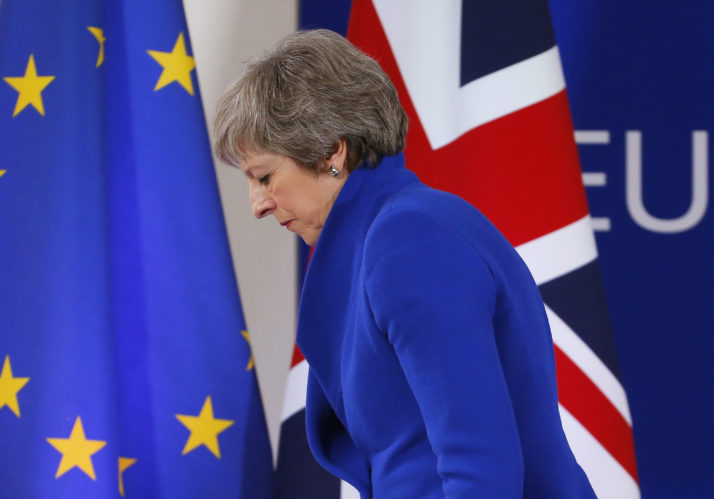Prime Minister Theresa May today suffered a humiliating defeat over her plan to withdraw Britain from the European Union, thrusting the country further into political chaos with only 10 weeks to go until it is scheduled to leave the bloc.
The 432-to-202 vote to reject her proposal was the biggest defeat in the House of Commons for a prime minister in recent British history.
And it underscores how comprehensively Ms. May has failed to build consensus behind any single vision of how to exit the European Union.
Now factions in Parliament will offer their own proposals — setting off a new, unpredictable stage in Brexit, the process of withdrawing from the bloc.
“She has completely lost control of the process, and her version of Brexit must now be dead, if she loses by 230 votes,” said John Springford, deputy director of the Center for European Reform, a London-based research institute.
Negotiating the withdrawal from the European Union — which 52 percent of British voters, or 17.4 million people, supported in a referendum in 2016 — has been May’s single focus since she became prime minister, displacing social problems like housing and health care.
But her failure to convey any convincing vision of Britain’s future outside the European Union has allowed painful divisions in the country to deepen.
And it has created a risk that Britain will exit the 28-nation European bloc with no deal, which analysts have warned could tip Britain into recession and trigger shortages of food, medicine and electricity because of constraints on trade.
May’s plan would ultimately have given Britain’s government power over immigration from Europe, and would have kept Britain in the European Union’s customs and trade system until at least the end of 2020 while a long-term pact is negotiated.
Immediately after the vote against her proposal, the Labour Party leader, Jeremy Corbyn, citing the “sheer incompetence of this government,” called for a vote of no confidence in May, which will be debated on Wednesday.
That could in theory lead to a general election, but few analysts said they thought he could muster the necessary votes.
European Union officials, who have been waiting for Britain to resolve its plan, were muted in an official statement, though exasperated on Twitter.
If a deal is impossible, and no one wants no deal, then who will finally have the courage to say what the only positive solution is?
— Donald Tusk (@eucopresident) January 15, 2019
After the vote, May said she would allow members of Parliament to debate the various Brexit plans being bandied about.
But to win Labour Party support, any new proposal would likely be a so-called “softer” Brexit that would keep closer economic ties to the European Union.
Jean-Claude Juncker, the president of the European Commission, said on Twitter: “I urge the U.K. to clarify its intentions as soon as possible. Time is almost up.”
